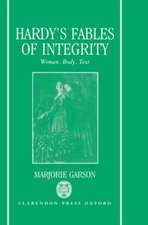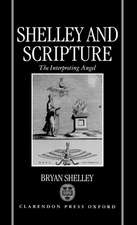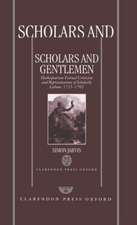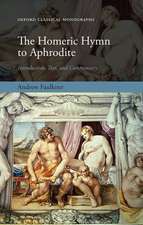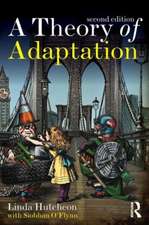The Rise of Corporate Publishing and Its Effects on Authorship in Early Twentieth Century America: Literary Criticism and Cultural Theory
Autor Kim Becnelen Limba Engleză Paperback – 11 sep 2014
Din seria Literary Criticism and Cultural Theory
- 9%
 Preț: 935.20 lei
Preț: 935.20 lei - 9%
 Preț: 1037.81 lei
Preț: 1037.81 lei -
 Preț: 309.89 lei
Preț: 309.89 lei - 18%
 Preț: 1053.16 lei
Preț: 1053.16 lei - 18%
 Preț: 999.02 lei
Preț: 999.02 lei - 18%
 Preț: 1005.39 lei
Preț: 1005.39 lei - 18%
 Preț: 1102.88 lei
Preț: 1102.88 lei - 18%
 Preț: 1054.58 lei
Preț: 1054.58 lei - 18%
 Preț: 998.71 lei
Preț: 998.71 lei - 18%
 Preț: 701.56 lei
Preț: 701.56 lei - 18%
 Preț: 1109.78 lei
Preț: 1109.78 lei - 18%
 Preț: 1054.61 lei
Preț: 1054.61 lei - 18%
 Preț: 1062.98 lei
Preț: 1062.98 lei - 18%
 Preț: 1051.55 lei
Preț: 1051.55 lei - 15%
 Preț: 697.34 lei
Preț: 697.34 lei - 18%
 Preț: 1050.16 lei
Preț: 1050.16 lei - 18%
 Preț: 998.08 lei
Preț: 998.08 lei - 26%
 Preț: 819.09 lei
Preț: 819.09 lei - 26%
 Preț: 766.12 lei
Preț: 766.12 lei - 18%
 Preț: 997.45 lei
Preț: 997.45 lei - 18%
 Preț: 998.26 lei
Preț: 998.26 lei - 28%
 Preț: 490.08 lei
Preț: 490.08 lei - 18%
 Preț: 998.88 lei
Preț: 998.88 lei - 18%
 Preț: 1109.18 lei
Preț: 1109.18 lei - 18%
 Preț: 1105.24 lei
Preț: 1105.24 lei - 31%
 Preț: 763.64 lei
Preț: 763.64 lei - 18%
 Preț: 1000.61 lei
Preț: 1000.61 lei - 18%
 Preț: 999.82 lei
Preț: 999.82 lei - 26%
 Preț: 819.48 lei
Preț: 819.48 lei - 26%
 Preț: 763.78 lei
Preț: 763.78 lei - 18%
 Preț: 779.28 lei
Preț: 779.28 lei - 17%
 Preț: 245.56 lei
Preț: 245.56 lei - 18%
 Preț: 1106.81 lei
Preț: 1106.81 lei - 18%
 Preț: 998.56 lei
Preț: 998.56 lei - 26%
 Preț: 877.30 lei
Preț: 877.30 lei - 18%
 Preț: 999.46 lei
Preț: 999.46 lei - 26%
 Preț: 819.09 lei
Preț: 819.09 lei - 15%
 Preț: 673.44 lei
Preț: 673.44 lei -
 Preț: 365.54 lei
Preț: 365.54 lei - 18%
 Preț: 1052.35 lei
Preț: 1052.35 lei - 18%
 Preț: 1057.05 lei
Preț: 1057.05 lei - 18%
 Preț: 944.11 lei
Preț: 944.11 lei - 18%
 Preț: 1056.28 lei
Preț: 1056.28 lei - 26%
 Preț: 763.39 lei
Preț: 763.39 lei - 26%
 Preț: 819.09 lei
Preț: 819.09 lei - 31%
 Preț: 766.66 lei
Preț: 766.66 lei - 18%
 Preț: 997.45 lei
Preț: 997.45 lei - 26%
 Preț: 820.32 lei
Preț: 820.32 lei - 18%
 Preț: 731.71 lei
Preț: 731.71 lei - 18%
 Preț: 1002.36 lei
Preț: 1002.36 lei
Preț: 479.63 lei
Nou
Puncte Express: 719
Preț estimativ în valută:
91.77€ • 96.08$ • 75.94£
91.77€ • 96.08$ • 75.94£
Carte tipărită la comandă
Livrare economică 05-19 aprilie
Preluare comenzi: 021 569.72.76
Specificații
ISBN-13: 9780415762472
ISBN-10: 0415762472
Pagini: 160
Dimensiuni: 152 x 229 x 13 mm
Greutate: 0.23 kg
Ediția:1
Editura: Taylor & Francis
Colecția Routledge
Seria Literary Criticism and Cultural Theory
Locul publicării:Oxford, United Kingdom
ISBN-10: 0415762472
Pagini: 160
Dimensiuni: 152 x 229 x 13 mm
Greutate: 0.23 kg
Ediția:1
Editura: Taylor & Francis
Colecția Routledge
Seria Literary Criticism and Cultural Theory
Locul publicării:Oxford, United Kingdom
Public țintă
PostgraduateCuprins
Introduction; Chapter 1 The Book Business in the 1920s and 30s; Chapter 2 Djuna Barnes; Chapter 3 Lloyd Douglas; Chapter 4 Pearl Buck’s other Gods; Chapter 5 William Faulkner; Conclusion;
Descriere
The book sets out to disprove the assumption that when the world of publishing went corporate in the early decades of the twentieth century, it caused the ruin or at the very least, the dilution, of true literary works of art.




